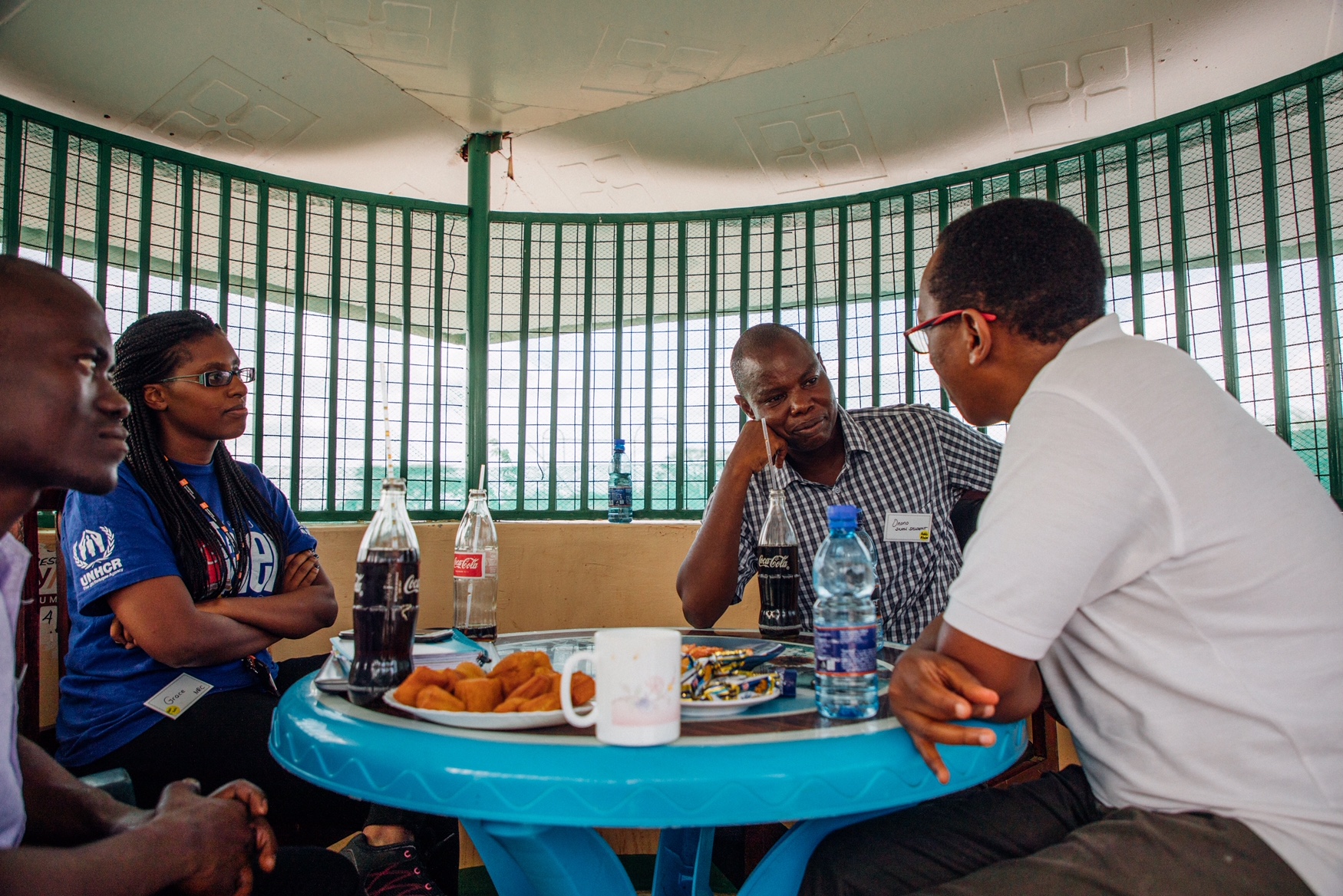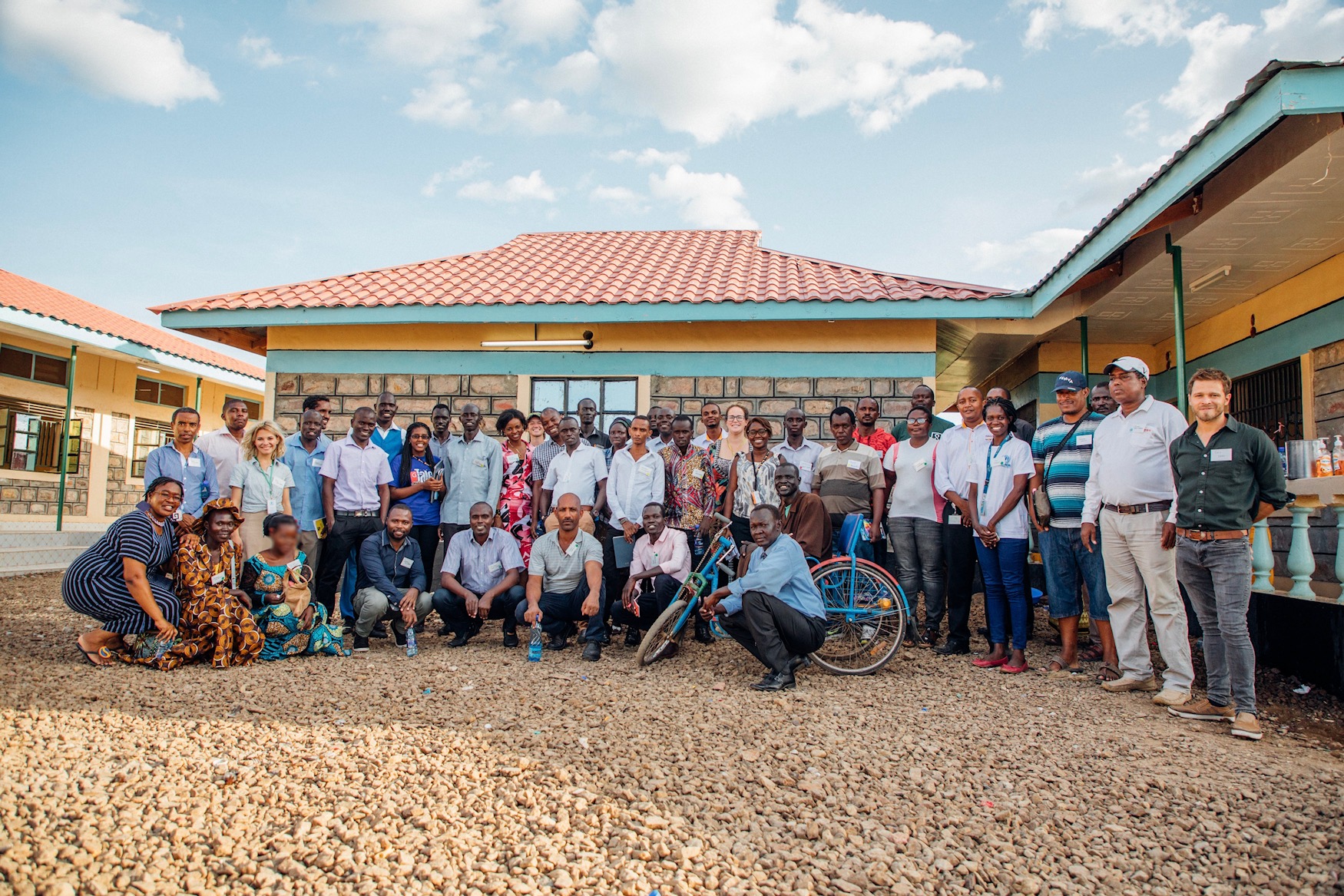By Ebssa Tolossa – KANERE reporter
Students from Kakuma’s newest higher education programme had an opportunity to chat with area professionals, business leaders, and agency representatives.
This year, Southern New Hampshire University’s Global Education Movement (GEM) enrolled 22 students from across the refugee and host communities to earn a US-accredited Bachelor’s Degree, in partnership with Jesuit Worldwide Learning (JWL). Based at JRS’s Arrupe Learning Centre in Kakuma One, GEM is a blended learning programme involving both an online curriculum and classroom facilitation. It is a partnership between Jesuit World Learning (JWL) and the US-based Southern New Hampshire University (SNHU).
June’s event at Silga Springs introduced GEM students to potential stakeholders from around Kakuma, including both business owners and humanitarian agencies. Programme Coordinator Dennis Momanyi explained that it was also an attempt to bring together students and potential future employers, reflecting GEM’s plans “to marry knowledge and work”.

The new education initiative focuses on both educational and employment outcomes for learners. While students are in the degree programme, GEM will also assist them in their search for internships where they can gain on-the-job experience and build connections for future jobs.
The programme is therefore in line with the UNHCR’s elevation of self-reliance as a target for beneficiaries. Speaking to the refugee learners in the audience, Edith Ingutia from the UNHCR Livelihoods Unit encouraged students to find ways to put their skills to use. She also welcomed the increasing recognition in Kenya that refugees are not simply a drag on the economy, that they can be job creators for fellow migrants and Kenyans.
However, regulations on refugee employment in Kenya remain restrictive. The 2006 Refugee Act specifies that refugees must obtain work permits like any other non-citizens seeking a livelihood in Kenya. However, obtaining the necessary documents, including the Class M Permit specified in Schedule Seven of the 2012 Kenya Citizenship and Immigration Regulations, has long been hindered by bureaucratic hurdles.
It was hoped that a revised Refugee Act might provide more explicit provisions for refugees’ access to employment, land and property protections, but President Kenyatta rejected the Bill when it reached his desk last year.

Nonetheless, there has been increasing recognition of Kakuma’s bustling economy, both in terms of existing business practices as well as its potential as a site of future investment. The World Bank conducted a survey of the impact of the refugee camps on the regional economy, culminating in the report titled “Yes in My Backyard”. The IFC also recently published a report optimistically describing Kakuma as a potential target for private sector investment.
“The programme is comfortable and its really helpful “Jilo one of the beneficiaries from refugee community.
